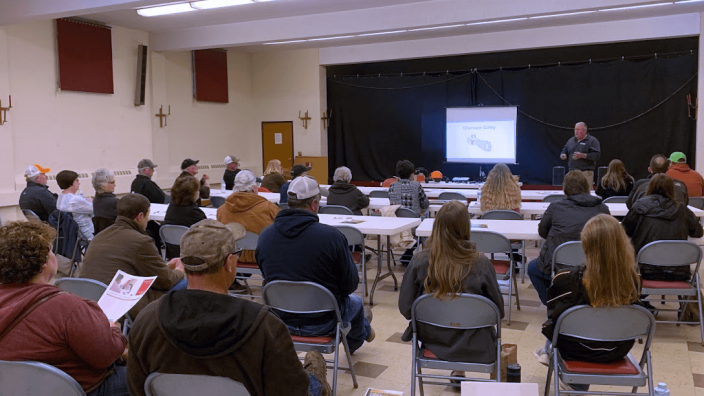Six tips to avoid slippery situations this winter
Ohio Bureau of Workers’ Compensation offers five tips to help prevent slips, trips and falls—one of the top causes of workplace injuries.
Read MoreSpeakers from Cedar Ridge Behavioral Health Solutions, Mideast Career and Technology Center and Rankin and Rankin Insurance Services covered topics with the hope to help reduce accidents on the farm.
On Tuesday April 5, the Muskingum and Perry County Farm Bureaus hosted a joint Safety Meeting. Speakers from Cedar Ridge Behavioral Health Solutions, Mideast Career and Technology Center and Rankin and Rankin Insurance Services covered topics with the hope to help reduce accidents on the farm.
Farming continues to be one of the most dangerous occupations in Ohio. By attending the annual safety meeting, local farmers refresh their knowledge on safety measures that will help reduce accidents.
Candi Frame from Cedar Ridge opened our members eyes to how mental health affects the agriculture community.
“The first and hardest step in recovering mental health struggles is asking for help and talking to someone,” Frame said. Those who struggle with anxiety and depression are more likely to have accidents. Remind your loved ones, it is ok to not be ok.
Brian Wilfong is the natural resource and conservation instructor from Mid-East CTC and spoke about chainsaw safety. All chainsaws come with an owner’s manual. Wilfong recommended to always review the manual prior to use and use the recommended personal protective equipment (PPE). You only have two legs, two eyes, and two hands. Do what you can to keep it that way and wear your PPE.
Teresa Tom from Rankin and Rankin Insurance Services shared what Nationwide Insurance sees as the most prevalent farm accidents. One of the most prevalent farm claims is fires in agricultural buildings. By keeping clutter to a minimum and properly storing fuel and flammable chemicals, you can reduce your risk of having a fire.
“One of the simplest ways you can prevent a total loss is have a fire extinguisher easily accessible at all times. Having extinguishers that are in date and serviced regularly can sometimes get you a discount on your insurance as well!” Tom said.
The Muskingum and Perry County Farm Bureaus would like to remind all members and those in the community to think safety. Watch out for everyday hazards, have an emergency plan, and don’t work alone if possible. If you have to work alone, let your loved ones know where you are going and when to expect you back. No one wakes up planning on an accident affecting their life or livelihood that’s why they are called accidents.


Ohio Bureau of Workers’ Compensation offers five tips to help prevent slips, trips and falls—one of the top causes of workplace injuries.
Read More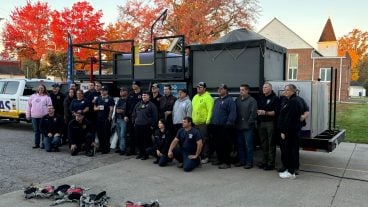
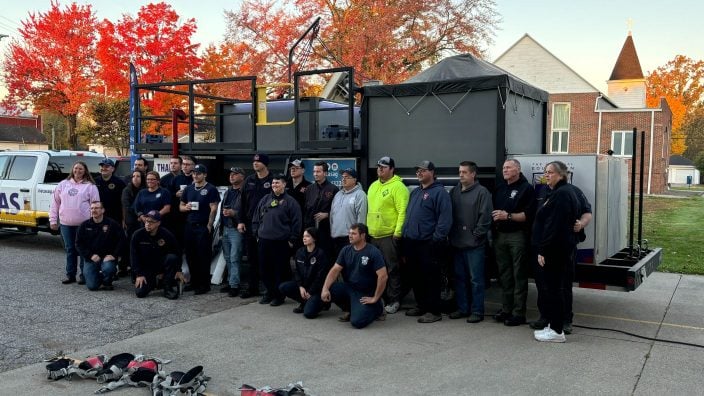
Nationwide’s Grain Bin Safety campaign has awarded grain rescue tubes and training to 390 fire departments across 32 states since 2014.
Read More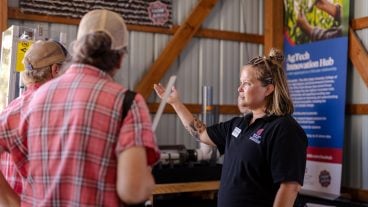
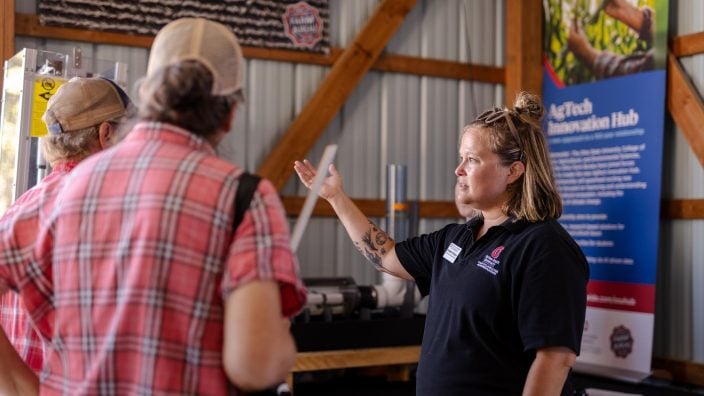
Each session highlighted new and innovative solutions, research, and information on the latest technology and strategies to protect farms and rural communities.
Read More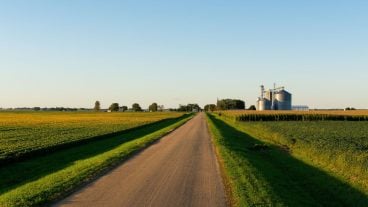
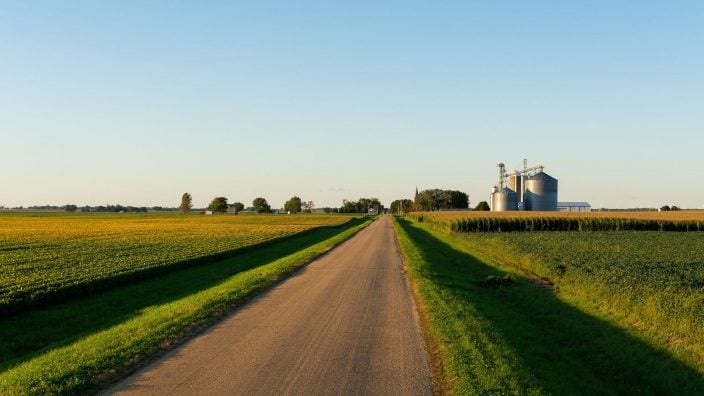
Staying alert is the best way to prevent accidents on the road.
Read More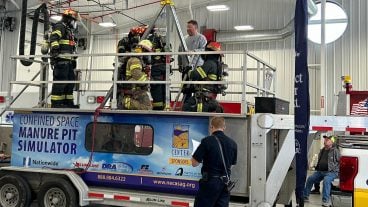

Crawford, Marion, Morrow and Richland County Farm Bureaus hosted four manure pit safety and rescue training sessions where participants learned critical information about the hazards of working around manure pits.
Read More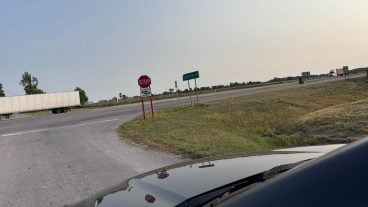
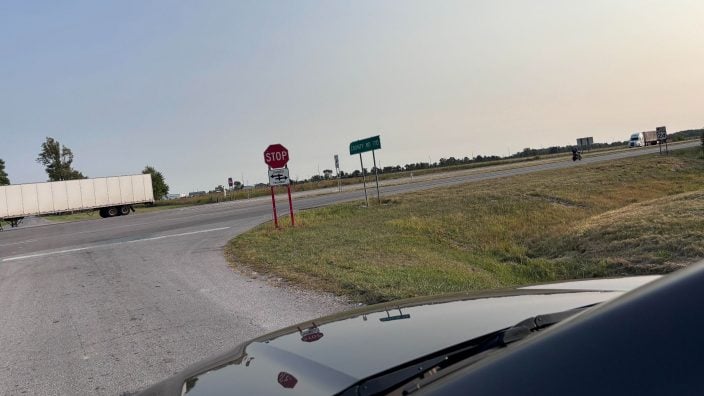
24/17D intersection has been a dangerous place for a long time. The Wachtmans have campaigned for more than 10 years for the county and the Ohio Department of Transportation to make it safer.
Read More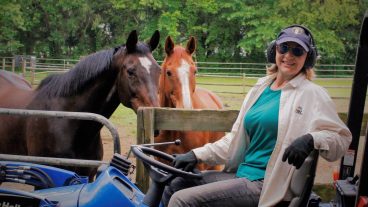
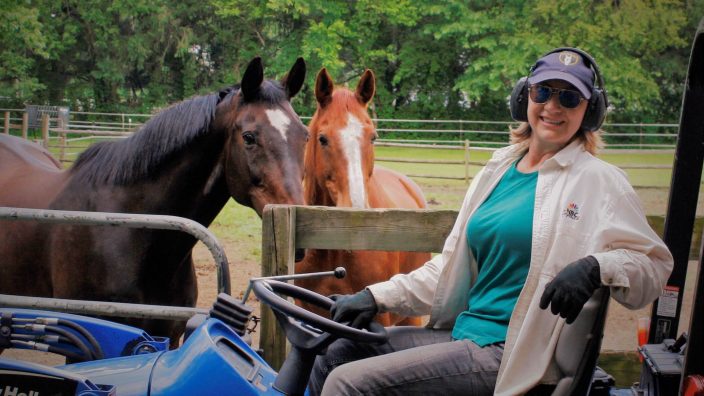
One of the most hazardous jobs in the country is agriculture, but working with Ohio Bureau of Workers’ Compensation safety consultants can help prevent hazards before accidents happen.
Read More

With more farm equipment on the roads, slowing down and staying alert can save lives — maybe even yours.
Read More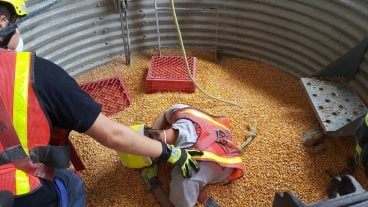
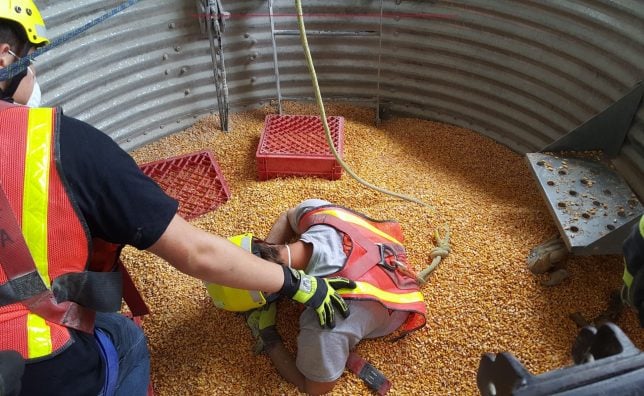
Join us Oct. 22 at 6 p.m. at the Rome Fire Department for Grain Bin Rescue Training taught by the National Education Center of Agricultural Safety.
Read More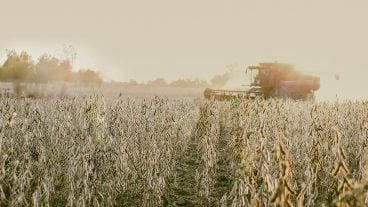
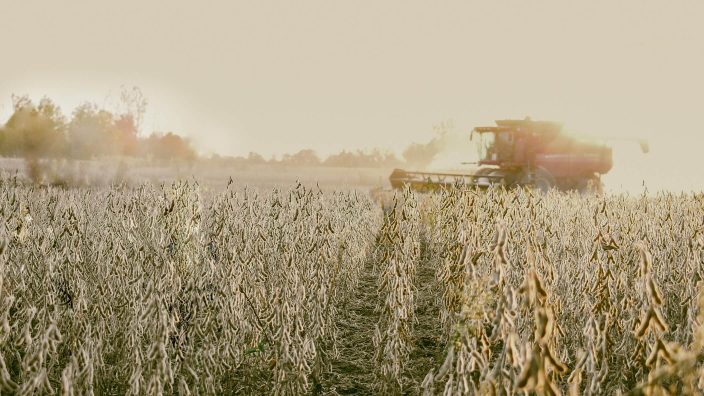
Ohio BWC services are offered at no cost to employers, helping to ensure that a safer and more productive harvest season is the main priority.
Read More